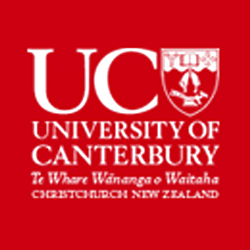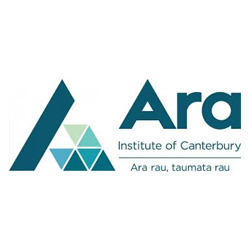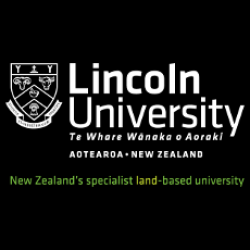
Implementing and evaluating the Pasifika success toolkit within Canterbury tertiary organisations
Status
Completed: 7 September 2018
Project Details
This two-year project was informed by the previous project Change Strategies to enhance Pasifika Student Success at three Canterbury tertiary institutions. It is a continuing collaboration of the University of Canterbury, Ara Institute of Canterbury and Lincoln University, and focused on amplifying the Pasifika student perspective through the completion and implementation of a Pasifika Resource kit as identified and recommended by the previous project.
The Pasifika resource kit includes:
- a definition of Pasifika success
- student and staff videos
- Pasifika Success Indicators within a turtle resource
- exemplars of good practice
- an example of an indigenous ‘Pacific’ values model for cultural responsiveness training and development
- a list of helpful suggestions for non-Pacific staff.
Aims:
The primary aims of the project were to:
- understand how Pasifika learners define success
- learn more about the initiatives that are in place to enhance Pasifika success
- find out if the toolkit makes a difference to Pasifika student experiences and outcomes
- encourage use of the toolkit across the participating institutions and the tertiary sector.
The project also aimed to achieve the following outcomes:
- Pasifika Success Toolkit is utilised, maintained, developed and regularly evaluated for effectiveness.
- Pasifika Success Indicators are monitored in tandem with educational performance indicators for improved Pasifika success overall.
- Pasifika pedagogies and epistemologies are valued and visible within a greater range of areas in teaching, learning and research.
- Staff whose institutions are involved in the project increase their understanding and confidence to engage more effectively with Pasifika students.
- Pasifika students have an increased sense of belonging.
- Institutional environments reflect more culturally responsive services and spaces for Pasifika students.
- Pasifika recruitment, retention and completion rates improve.
Methodology:
The project methodology included five phases: planning and initiation; toolkit implementation; evaluation; qualitative and quantitative analysis and refining and sharing.
Team

Pauline Luafutu-Simpson
Project Contact Leader
University of Canterbury
Ashalyna Noa
Project Coordinator
University of Canterbury
Sam Uta’i
Ara Institute of Canterbury
Fatuaiga Dr Lorraine Petelo
Academic Advisor
Lincoln University
Margaret Leonard
Academic Advisor
Ara Institute of Canterbury
Dr Elena Moltchanova
Academic Advisor
University of CanterburyStatus
Funding
$102,720.00 (excl GST)
Key Findings
Key areas of learning for staff included:
- Increased understanding of Pasifika culture and values, particularly regarding what ‘success’ means from a Pasifika learner perspective.
- Increased motivation to implement strategies to help Pasifika learners succeed, including motivation to change approaches in service delivery and changing course curricula to be more flexible and engaging.
- Increased confidence in engaging with Pasifika, including being conscious of what they can do to enhance Pasifika success within their own role.
- Increased camaraderie around enhancing Pasifika success, and a shared sense of support with other colleagues.
- Increased knowledge of what is being done for Pasifika learners within own institution and other institutions.
- Reinforced the significance of student cultural values in teaching and learning, especially the importance of ensuring Pasifika students feel a sense of belonging.
Respondents found the workshops valuable, informative, engaging, and a safe environment to learn in. As a result, individuals were more confident and assertive in advocating for transformative change in their spaces.
Participants highlighted the impact that the resources had on their practice. All of the resources, such as the student video, PSI wheel - which has now been developed into the Pasifika Success Indicators (PSI) tool - workbook, and cultural frame, were mentioned by participants as being very useful and gave them more confidence in making changes for Pasifika.
Some challenges were noted with transferring knowledge into practice. The key themes around these barriers were time, workload, and structure.
Key Recommendations
Four key themes emerged around staff recommendations:
- Transforming teaching and learning, particularly teaching pedagogies and practices.
- Improving support for Pasifika students, including strengthening processes for identifying students.
- Promoting more about Pasifika to both increase a sense of belonging for Pasifika students and making non-Pasifika more aware of diversity.
- Providing staff with additional support to increase their awareness of Pasifika culture and values and implement strategies to support Pasifika learners.
Additional funding to develop appropriate and high quality resources and to create an online space to host all the materials was recommended.
The five Pasifika Success Indicators demonstrate quality practice that students identified as having a significant influence on their perceived pathways to success. Each indicator also has a list of suggested approaches that staff can use to either continue to support an existing initiative or to establish an approach in their department or institution.
- 6 September 2018
A group of Pacific students talk about what success means to them.
- 30 March 2017
A report that details the overview, methods and key findings for each phase of the project 'Implementing and evaluating the efficacy of a Pasifika Resource Kit within three Canterbury tertiary institutions'.
- 1 April 2018
Three students share their experiences of being Pasifika students at University.
- 29 January 2018
University staff talk about what they learnt from the Pasifika success workshops and how it has impacted their practice.
- 29 January 2018
University staff reflect on difficulties with enhancing Pasifika student success within their institutions and what can be done to improve Pasifika success in their institutions.
- 29 January 2018